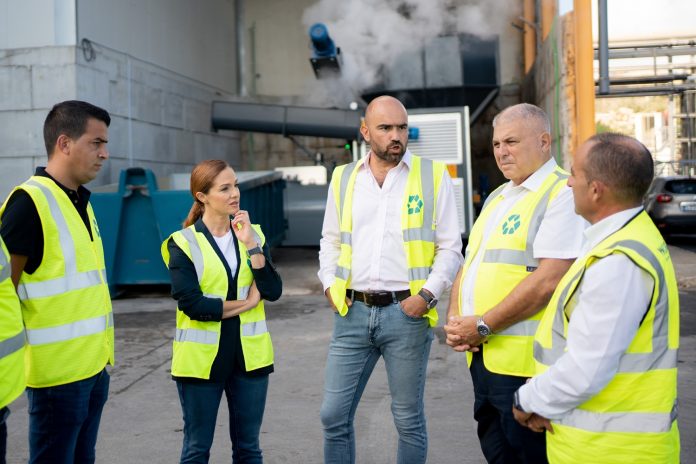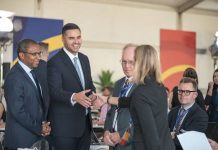WasteServ is taking another significant step towards advancing our circular economy through an investment in a resource-efficient pasteurisation unit. This investment reinforces WasteServ’s ongoing commitment to transforming organic waste into valuable resources, driving the country towards a more sustainable future. The announcement was made by Minister for the Environment, Energy and the Regeneration of the Grand Harbour Miriam Dalli and Minister for Agriculture, Fisheries and Animal Rights Anton Refalo during a visit to WasteServ’s ECOHIVE Complex in Naxxar, where this equipment is based.
The new pasteuriser processes digestate material, a by-product of organic waste processing, into agricultural-grade compost that farmers can safely use to enrich their soil. In addition to generating energy from the organic waste collected, WasteServ will now convert further this material into a clean, high-quality soil additive to support local agriculture.
Minister Miriam Dalli said that this new equipment will enhance WasteServ’s ability to transform waste into more valuable resources, contributing significantly to sustainability efforts. “This initiative builds upon WasteServ’s ongoing composting efforts at the Ta’ Qali Civic Amenity Site, which already plays a key role in turning agricultural waste into compost. By combining the outputs from both facilities, WasteServ is promoting the sustainable use of resources while further supporting the agricultural sector,” she stated.
Minister Anton Refalo explained that this is very crucial for maintaining the crops, and all this can be possible through a process that sees that the compost is distributed to farmers, and this will eventually lead to food of quality on the tables of Maltese and Gozitan families. “Today we are again seeing that the government is keeping its word with dozens of Maltese and Gozitan farmers and at the same time this also showcases the work being carried out by the Malta Food Agency to manage the holistic process of the local product from production until it reaches the consumer.”
WasteServ CEO Richard Bilocca explained that this investment represents a major upgrade in WasteServ’s composting capabilities. “The commissioning and testing of this machinery are currently in progress aiming to significantly increase compost production, with a yearly production capacity of around 2,900 tonnes of compost. This investment will not only allow us to produce substantially more compost for farmers but will also increase the value and quality of the organic material,” said Mr Bilocca.
Chief Executive of the Malta Food Agency Brian Vella said that “This project will continue to complement a project that we have already started in collaboration between WasteServ and the Malta Food Agency. With this agreement we will continue to strengthen the circular economy. With projects like these farmers will also be benefiting because this compost is being given back to the farmers to be used in their fields to grow the local product and strengthen the resilience of the sector.”
The pasteuriser will use steam to sterilise digestate at very high temperatures. Its design ensures minimal energy loss, enabling it to convert all digestate material into usable compost.
The high-quality compost produced through this new system will be distributed to farmers free of charge through an agreement between WasteServ and the Malta Food Agency. Farmers will be able to collect the compost from the Pitkalija.
![]()








